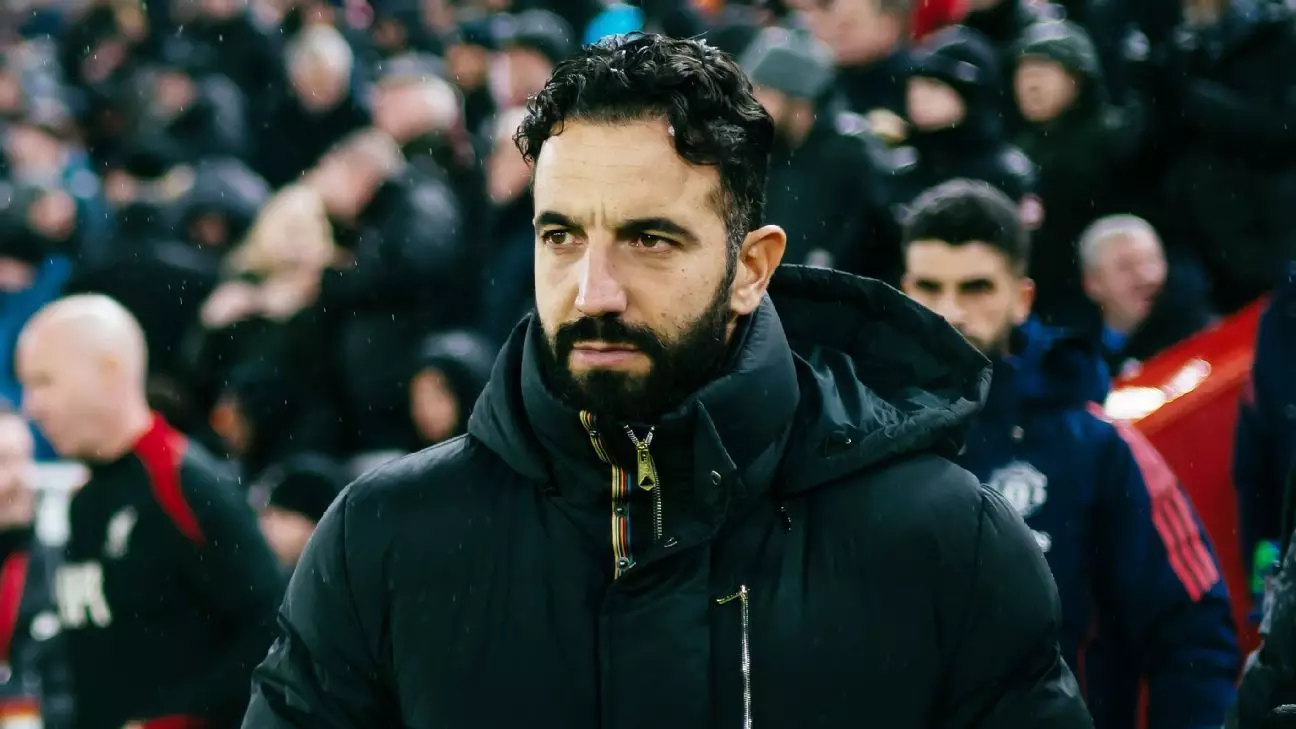The landscape of English football sees no shortage of stories, but few capture the essence of a club’s struggle like that of Manchester United in the current season. Following a hard-fought 2-2 draw against arch-rivals Liverpool, the team’s interim head coach, Ruben Amorim, has openly discussed the challenges facing the club and the necessary measures to reinvigorate a squad that is mired in mediocrity.
In his post-match comments, Amorim mentioned a need to “shock” the squad, expressing concern that complacency had seeped into the culture at Old Trafford. He exuded a sense of urgency, noting that previous losses—five out of six games, to be precise—had left the team in a precarious position. His remarks suggest a strategic pivot aimed at jarring the players out of their comfort zones. Thus, his methods may be perceived as controversial; however, they are underpinned by an earnest desire to ignite a competitive spirit among the players.
Amorim argued that the team’s struggles are not solely attributable to tactical inefficacies but rather stem from a mindset that fosters timidity and reliance on past successes. His assertion that players appeared “afraid” to seize possession highlights a psychological barrier that needs dismantling if the team is to reclaim its former glory. This psychological aspect shouldn’t be underestimated, as it can hinder performance far more than technical or tactical flaws.
The draw at Anfield can be framed as a crucial turning point for United, especially following a trio of disappointing home defeats. For United, the match carried the weight of expectations, especially after Liverpool managed to establish a 2-1 lead late in the game. However, the heroic late equalizer from Amad Diallo offers a glimmer of hope amid the gloom. The goal not only salvaged a point but also demonstrated resilience—something that had been lacking in previous outings.
The scenario also highlighted missed opportunities, particularly Harry Maguire’s failure to convert a golden chance in stoppage time. Such moments can shift the narrative from one of potential revival to frustration. Amorim’s decision to focus on the positives of teamwork rather than chastising individuals for their mistakes serves as a refreshing perspective in a sport often dominated by blame culture.
Looking ahead, Amorim’s challenge is clear: avoid further slippage and embed a consistent level of performance throughout the remainder of the season. This is no small task, considering the unpredictable nature of football where momentum can shift quickly. United’s upcoming fixtures, including an FA Cup clash against Arsenal, present opportunities to build upon the lessons learned from their latest performance. Amorim’s emphasis on daily training and maintaining a strong mentality speaks volumes about his commitment to fostering a robust team atmosphere.
The upcoming matches will not only test the tactical acumen of Amorim but also challenge the mental and emotional resilience of the squad. After battling through the lows of a tumultuous season, maintaining form against lower-ranked opponents like Southampton will be critical in ensuring that the club doesn’t fall into another period of decline.
Amorim has introduced a refreshing brand of accountability, not just for the players but for himself as well. His willingness to declare his own frustration about the team’s performance shows a maturity that is often missing in coaching. By challenging every player—himself included—there is a potential craft for solidarity that may lay the groundwork for long-term success.
The recent draw against Liverpool could be the catalyst for much-needed change at Manchester United. Amorim’s desire to cultivate a culture of resilience and non-complacency might just enable the club to navigate the treacherous waters ahead. However, it will require unwavering dedication, a collective effort across all levels of the organization, and most importantly, a willingness to confront discomfort head-on. Only then can Manchester United begin to rise once more.

